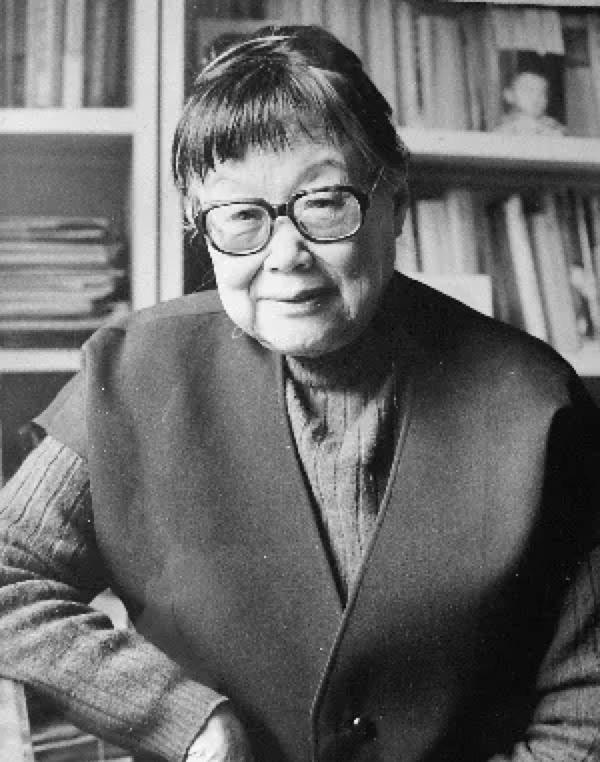Zheng Min, a famous chinese literary figure, outstanding poet and scholar, representative of the "Chinese New Poetry School", one of the "Nine Leaf Poets", and professor of the School of Foreign Chinese Literature of Beijing Normal University, died in Beijing on January 3 at the age of 102 due to illness. Zheng Min once talked about the mental process of moving from "literature" to "philosophy" in an exclusive interview with a Reporter from Nandu. Her poetry is considered to pursue a high degree of unity between "poetry" and "thought", integrating the care for human nature and the perception of life into poetic philosophical thinking, which is closely related to the vicissitudes of the times and the fate of Chinese intellectuals.

Zheng Min died in Beijing on January 3 at the age of 102 due to illness.
According to the School of Foreign Chinese Literature of Beijing Normal University, Zheng Min was born on July 18, 1920, from Minhou, Fujian. In 1939, he was admitted to Southwest Union University, where he studied philosophy and graduated in 1943. During his studies at Southwest United University, he began to write poetry, and began to publish poetry works in 1943, which was highly affirmed by the poetry community. In April 1949, the first collection of poems, Collected Poems 1942-1947, was published by the Cultural Life Publishing House in Shanghai, which established her important position in the history of new Chinese poetry. In 1948, Zheng Min went to Brown University in the United States to study and obtained a master's degree in English literature; in 1955, he returned to his motherland and worked in the Institute of Literature of the Chinese Academy of Social Sciences (formerly known as the Chinese Academy of Sciences) to engage in English literature research; in 1960, he was transferred to the Department of Foreign Languages of Beijing Normal University to teach.
Zheng Min devoted her life to the creation of New Chinese poetry, the study of Chinese and Western poetry, the study of contemporary Western philosophical thought, poetry translation and education and teaching, and wrote a large number of poetry works in her lifetime, especially since the new period of reform and opening up, as an important poet of the "Nine Leaves School", her works have had a broad and far-reaching impact on the development of Chinese new poetry.
When Zheng Min was 85 years old and interviewed by Nandu reporters, he recalled the origin of the "Nine Leaves Poet": "Since 1949, 'Nine Leaves' is probably the first poetry group in the form of poetry genres, which has pioneering significance and is very important, and later poetry genres have begun to increase. ”
"Why is it called Nine Leaves?' 'Nine' refers to our nine poets. Including Mu Dan, Wang Xindi, Chen Jingrong, Tang Xiang, Tang Qi, Yuan Kejia, Du Yunxie, Cao Xinzhi (i.e., Hang Youhe) and Zheng Min himself, three of them studied at the Southwest United University. After Zheng Min's death, there was no one in the "Nine Leaf Sect".
When Zheng Min talked to the Nandu reporter about why he switched from "literature" to "philosophy", he said, "I know that I am a person who is not deeply involved in society, cannot write long novels, and does not know how to obtain direct nourishment from society, and it is precisely because of this that I believe that if there is no depth of philosophy, the comprehension of literature will be insufficient; I must study philosophy in order to understand society and life from philosophy." ”
Until his later years, Zheng Min was still concerned about current affairs. She once told Nandu reporters, "We think that what we should be most concerned about is the problem of globalization, concerned about what happens in the world every day", "I am a rational person, my brain can't stop, I am always thinking, always worrying about the next generation." Man needs a conscience of knowledge. Now, I read books every day, I watch TV, I see what's going on in society, I see how people argue. ”
The eulogy of the School of Foreign Chinese Literature of Beijing Normal University mentions that Zheng Min's poetry pursues a high degree of unity between sensibility and rationality, "poetry" and "thought", and integrates her concern for human nature and her perception of life into poetic philosophical thinking, and her poems are closely related to the vicissitudes of the times and the fate of Chinese intellectuals. "It shows the courage, responsibility and noble sentiment of a Chinese poet and intellectual seeking the truth."
Written by: Nandu reporter Zhang Linfei